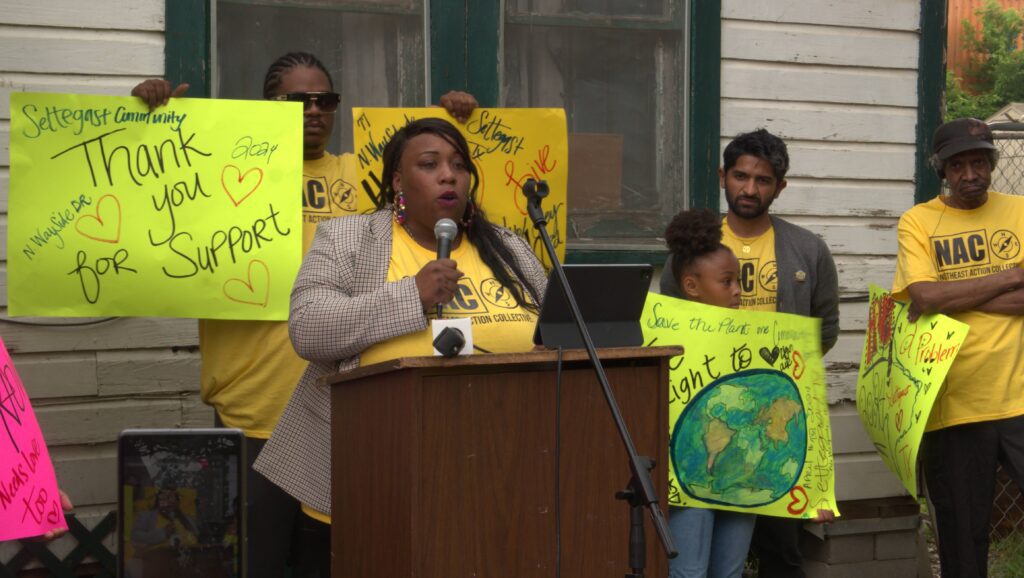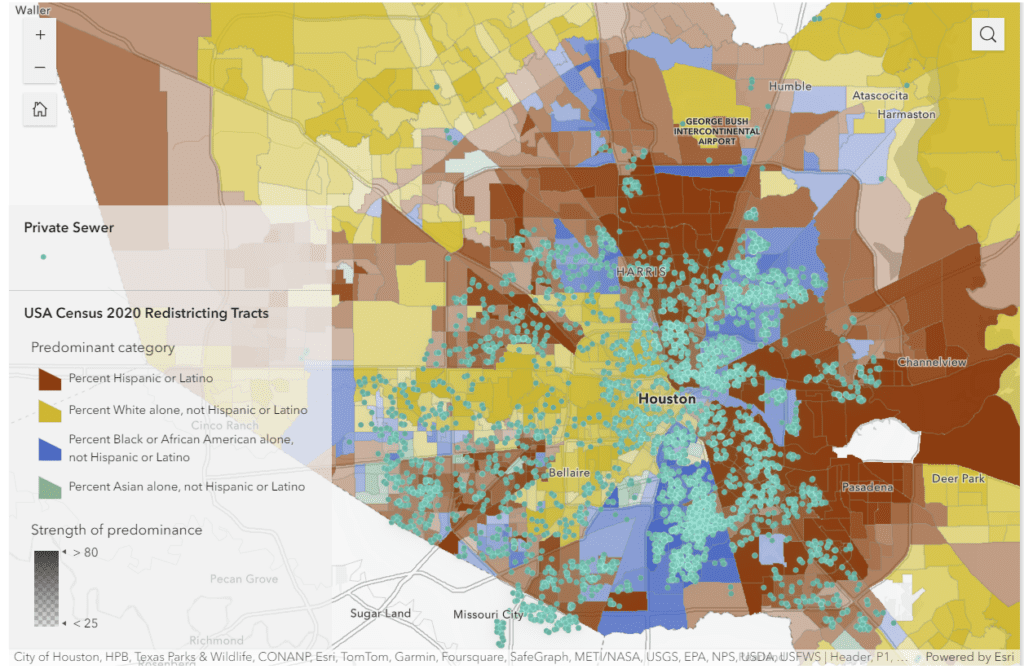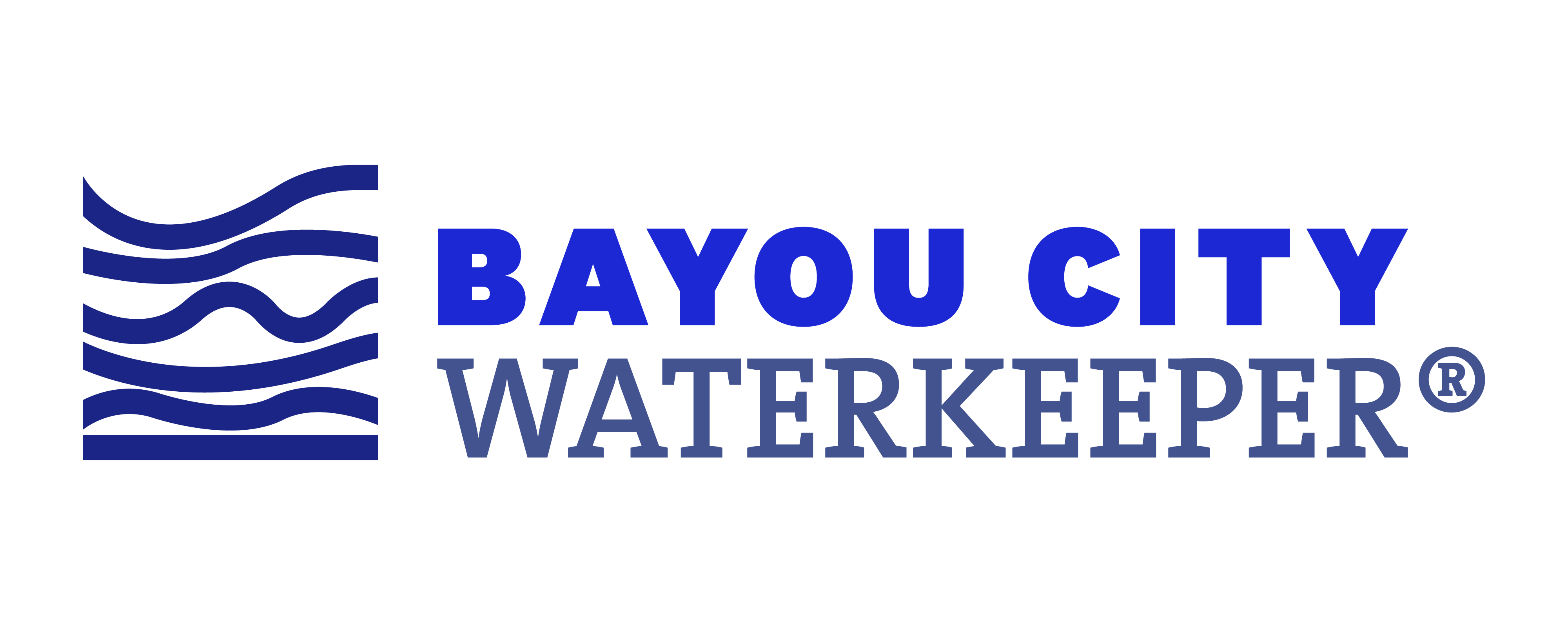 Settegast community member Sade Hogue hosted a press conference at her home to highlight the need for increasing investment in Houston’s private sewer line repairs in lower-wealth communities
Settegast community member Sade Hogue hosted a press conference at her home to highlight the need for increasing investment in Houston’s private sewer line repairs in lower-wealth communities
Bayou City Waterkeeper, Northeast Action Collective, and West Street Recovery kicked off efforts to demand the City of Houston invests in private sewer lateral repairs through a press conference, community sewage tour, and testimonies at City Hall.
Community members gathered yesterday at the Settegast neighborhood in Northeast Houston to shed light on a critical problem for Houston residents: sewage pollution. Residents who have been impacted by sewer leaks, community advocates and scientists spoke in favor of actions aimed at addressing the risks of sewer leaks on public health. They proposed the creation of a $20 million Sewer Lateral Repair Fund to improve environmental conditions and the quality of life of the City’s residents.
(A recording of the event is available here. More background about this issue is available on Bayou City Waterkeeper’s Justice in the Sewers hub. Photos from the event and other related photos are available here.)
In 2021, a local federal judge approved a settlement, called a consent decree, requiring the City of Houston to invest $2 billion in area sanitary sewer infrastructure over 15 years. However, the agreement only covered the public part of the sewer system, and more than half of sewage infrastructure is on private property.
Private sewer leaks are not confined to a single home, but – especially in a rain-prone city like Houston – flow into streets, flood neighbors’ yards, and end up in local bayous. In communities with open-ditch drainage, broken lines leave sewage out in the open, where children and other vulnerable people are much more likely to come into contact with it and suffer health consequences.
In many cases, lack of investment in the public pipes have caused private lines to degrade, causing leaks and sewer overflows. The overflows have been concentrated in predominantly BIPOC neighborhoods. Community members highlighted the urgent need for sewer repairs on private property in order to make the wastewater system work as a whole and truly solve this long-standing problem for residents. This is a public health issue. This is an environmental justice issue.
Community and organizational leaders react:
“Sanitation, and public health are something we all deserve no matter where we are born or where we live,” said Billy Guevara, a Lakewood resident and Northeast Action Collective member. “To put it frankly, we are tired of living with this crap. Literally and figuratively. It is time for Environmental Justice, including Justice in the sewers!”
“This has cost me and my family in health, and bills of over $25,000 which we could not afford,” said Sade Hogue, a Settegast resident who hosted the press conference at her home and Northeast Action Collective member. “Parts of my home have been rendered unusable…. The worst part was that my family would not come into my home and refused to visit.”
“We are here today to call attention to a disaster that is impacting all of our health, which is our outdated private sewer laterals. So many houses are suffering in silence as unhealthy sewage backs up into toilets and showers, settles into front yards, and drips into our main water systems. My own home has this problem during heavy rains, as do many of my neighbors and friends.” Doris Brown, a Lakewood resident, Northeast Action Collective member, and Co-Director of Community Research, Organizing, and Development for West Street Recovery.
“We are three years out from the consent decree and we do see things happening but not on a scale that has a major impact on our community. Gaps in the Consent Decree have created huge challenges when addressing Houston’s poo problem….. This is a structural problem with a policy solution. We need the city to take action,” said Kourtney Revels, a member of the Northeast Action Collective and Water Justice Organizer for Bayou City Waterkeeper.
“The City’s own data speaks volumes about sewage injustices in this city,” said Ayanna Jolivet Mccloud, Executive Director of Bayou City Waterkeeper. “If you are poorer, or Blacker, or Browner, you’re more likely to experience a sewage problem in Houston.”
“This is what WE do. WSR, NAC, and BCWK are not the type to wait for action. We take Bold Action and hold our Elected accountable. We are doing the work at West Street Recovery because we cannot sit idle and slowly watch the health of families deteriorate in this city. We are doing the work because there is a lot of research and not enough action”, said Felix Kapoor, Co-Director of Rebuild and Organizing for West Street Recovery.

Read media coverage of this issue:
- Houston Public Media: Environmental groups call for $20 million city investment to address private sewer line leaks in Houston
- Houston Landing: Houston is repairing its aging sewer lines. Some residents say it’s not enough
- Axios: Houston advocates pressure city for sewage overflow funding
- Telemundo: Comunidad denuncia problemas con el sistema de alcantarillado y agua sucia al noreste de Houston
